A 30-year journey in search of saving the forests of South America
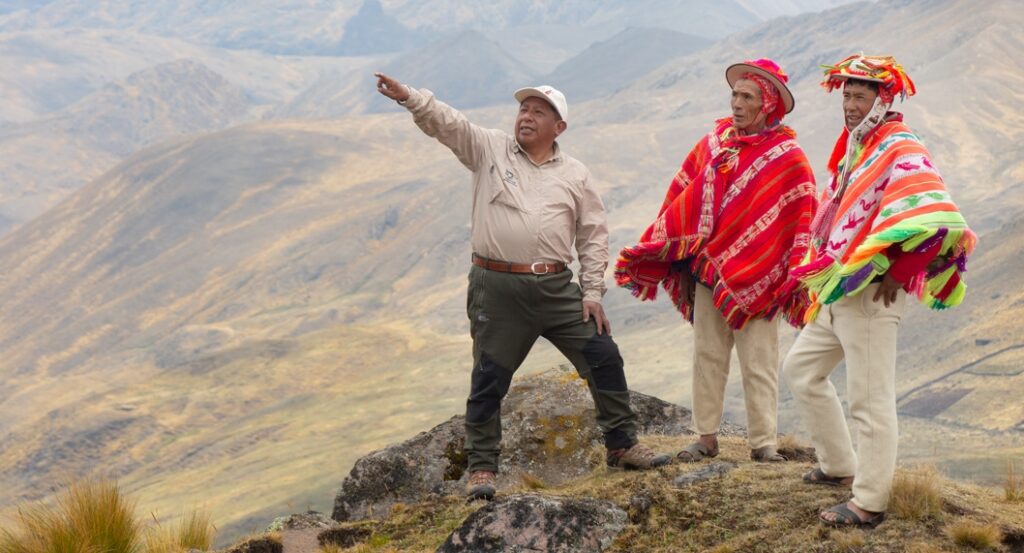
Constantino Aucca Chutas became interested in conservation thirty years ago when he was doing fieldwork as a biology student in Cusco, Peru.
At that time, the majestic slopes of the Peruvian Andes that surrounded the city were suffering from illegal logging and farm expansion.
“Conservation has become a necessity,” Aukka said recently in an interview with the United Nations Environment Program (UNEP). His desire to protect nature grew under the influence of his grandparents, who were native Quechua farmers. “I was told: look, your name is Aukka. It means warrior. Try to do something for us farmers,” he added.
Aukka has dedicated the last 30 years to fulfilling this request and is leading the movement of local people to protect forests across South America, which play a key role in the fight against climate change and are home to unique plant and animal species.
Asociación de Ecosistemas Andinos, founded by Aucca in 2000, has planted more than three million trees in Peru and protected or restored 30,000 hectares of land.
For his work, Aukka was awarded the Champions of the Earth Award in the Inspiration and Action category, the United Nations’ highest environmental award.
Latin America and the Caribbean is home to some of the world’s most striking examples of forest biodiversity, yet more than 40 percent of the region’s forests have been cleared or are in decline as a result of mining, agriculture and infrastructure projects.
The environmental movement, led by Aukka, helped the indigenous and socially disadvantaged indigenous people living on these lands gain legal rights to their land and create protected areas for their native forests.
“The innovation of Constantino Aukki Chutas reminds us that indigenous communities are at the forefront of conservation,” says Inger Andersen, Executive Director of UNEP. “They are one of the best conservationists, their contribution to the restoration of ecosystems is invaluable and is most timely for the planet.”
High mountain rainforest restoration
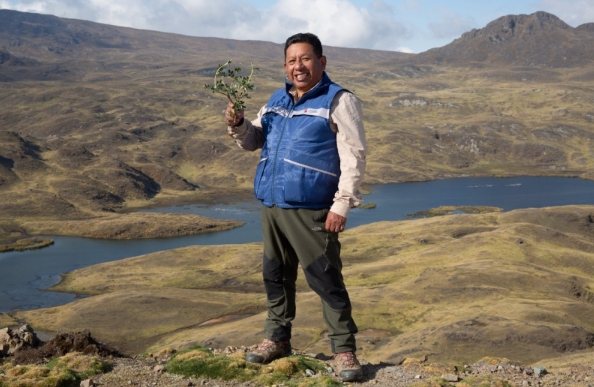
The Asociación de Ecosistemas Andinos has mobilized thousands of people in Cusco to protect and restore the ancient forests of Polylepis that once dominated the high Andes. Growing up to 5,000 meters above sea level – taller than any forest in the world – these trees play a vital role in combating climate change and biodiversity loss.
They provide shelter for endangered wildlife species, sequester carbon, stabilize the soil and provide water for downstream farms. Polylepis forests growing at a height absorb the fog and retain a huge amount of water from the clouds, which is gradually discharged through the moss cover, supporting the flow of mountain streams.
Vast areas of the Andes were once covered by Polylepis forests, but today, as a result of cutting down trees, grazing, logging and road construction, only 500,000 hectares remain. The disappearance of these mountain forests is leading to water shortages, threatening the lives and livelihoods of millions of people.
To ensure the survival of future generations of local farmers, the Aucchi Association holds annual tree planting festivals in Cusco. The day begins with ancient rituals based on the rich heritage of the Incas. Musicians blow conch shells and beat drums to celebrate nature, while villagers climb steep mountain paths to plant trees. Some carry bundles of seedlings on their backs, others carry babies.
“When we plant a tree, we give something back to Mother Earth. We are convinced that the more trees we plant, the more people will be happy. This is a holiday, this is a day of happiness,” says Aukka.
“When we plant a tree, we give something back to Mother Earth. We are convinced that the more trees we plant, the more people will be happy. This is a holiday, this is a day of happiness,” says Aukka.
Tribute to local communities
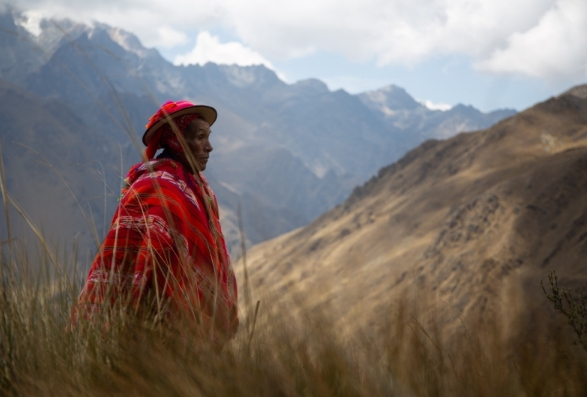
In exchange for their efforts to restore habitats, conserve birds and other wildlife, local residents receive assistance from Acción Andina in obtaining title to their lands, which provides legal protection from exploitation by timber, mining and oil companies.
Aukka and his team have also created conservation areas, brought doctors and dentists to remote mountain villages, and provided communities with solar panels and eco-friendly clay ovens to improve their quality of life.
Aukki’s concept of ecosystem restoration goes beyond his native Peru. In 2018, the Asociación de Ecosistemas Andinos and the American non-profit organization Global Forest Generation created the Acción Andina project to scale up the locally led reforestation model in other Andean countries.
As president of Acción Andina, Aucca will now oversee plans to protect and restore one million hectares of vital forests in Argentina, Bolivia, Chile, Colombia, Ecuador and Peru over the next 25 years. Its activities are a model of the work of the worldwide movement UN Decade on Ecosystem Restoration, aimed at preventing, halting the degradation of systems and their restoration.
Common good
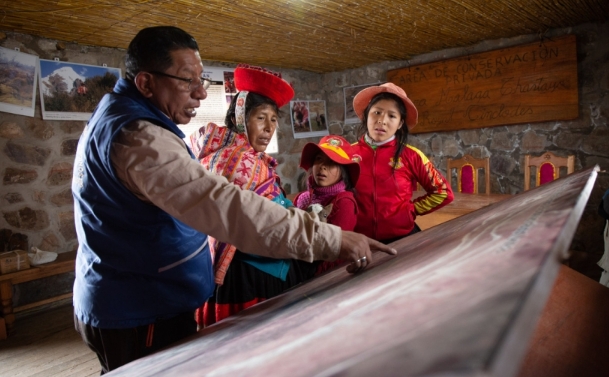
Restoration of 20 million hectares of degraded ecosystems in the Latin America and Caribbean region could bring benefits of $23 billion over 50 years, according to research findings. Thriving ecosystems are also needed to keep the increase in global warming below 2°C and help societies and economies implement climate change adaptation measures.
Aukka’s work is based on his deep connection to the Incan heritage and principles, as well as his commitment to working together for the common good, which can be seen in plans to expand reforestation in other countries where the Andes are located.
“Once we were the greatest empire in South America, united by the Inca culture,” Aukka said. “It was the first time we all got together. The next time we united to create a movement and free ourselves from the Spanish yoke, to achieve independence. Now we are getting together for the third time. For what? To protect the little tree.”
About the UNEP Champions of the Earth Award
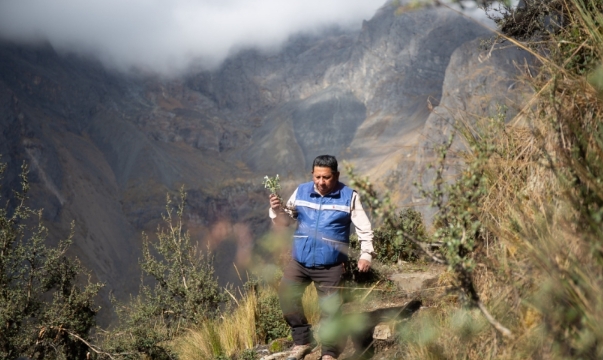
The United Nations Environment Program awards the Champions of the Earth award to individuals and organizations whose actions have a transformative impact on the environment. The annual Champions of the Earth award is the UN’s highest environmental award. It honors outstanding leaders of states, civil society and the private sector.
About the UN Decade on Ecosystem Restoration
The UN General Assembly has declared 2021-2030 the United Nations Decade for Ecosystem Restoration. Led by the United Nations Environment Programme, the Food and Agriculture Organization of the United Nations and supported by partners, this initiative aims to prevent, halt and reverse the loss and degradation of ecosystems around the world. It aims to revive billions of hectares, covering both terrestrial and aquatic ecosystems. The UN Decade is a global call to action that brings together political support, research and financial resources for a massive recovery.